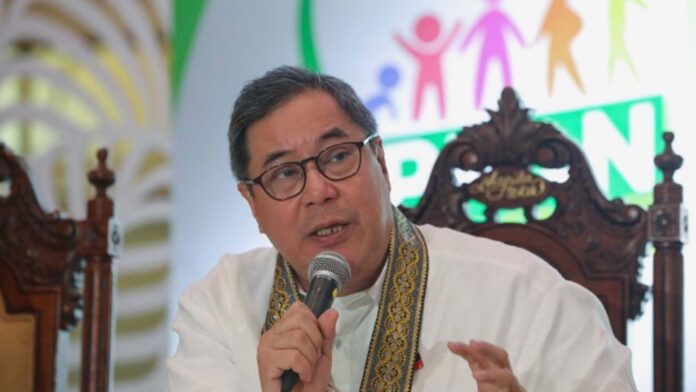The Department of Health (DOH) continues to improve its mandate of bringing quality healthcare services to all Filipinos nationwide.
For the year 2023, the agency was busy on the establishment of healthcare facilities, especially in the provinces, that would provide state-of-the-art medical services.
It has been productive in bringing laboratory services to poor people in far-flung areas with the help of other government agencies.
Specialty hospitals
On March 24, the Catheterization Laboratory (CathLab) at the Jose B. Lingad Memorial General Hospital in San Fernando City, Pampanga province opened to Central Luzon residents who need interventional cardiac and non-cardiac procedures under interventional radiology.
It was completed in 120 days through the Health Facilities Enhancement Program and in coordination with provincial and local government units.
Its funding was taken out of the PHP1-billion budget given to the hospital in 2013 for the provision of equipment and buildings.
Apart from cardiac procedures, the CathLab currently serves patients in the region who have different medical needs.
Meantime, the DOH launched the construction of the Clark Multi Specialty Medical Center on July 17 in collaboration with the Philippine Amusement and Gaming Corporation, the Clark Development Corporation, Pampanga local government units, and in partnership with the private sector like the Bloomberry Cultural Foundation, Inc.
Specialized departments, including heart, kidney, cancer, and pediatrics, are expected to open in the soon-to-rise medical center.
To ensure the facilities in the Eastern Visayas, DOH Secretary Ted Herbosa visited Biliran Provincial Hospital (BPH), DOH-Treatment and Rehabilitation Center-Dulag, Eastern Visayas Medical Center, and the Gov. Benjamin T. Romualdez General Hospital and Schistosomiasis Center on Oct. 26 to 27.
Herbosa checked on the construction of new facilities in some of these hospitals and their best practices, innovations, and operational challenges.
He also gave them instructions on how to improve strategies in maintaining the quality of service delivery.
Lab for all
For the benefit of the marginalized population, the DOH launched the “Libreng Laboratoryo, Konsulta, at Gamot Para sa Lahat” (Lab for All) caravan in Santa Cruz town, Laguna province on June 27.
The caravan, a project of First Lady Liza Araneta-Marcos, aims to provide free consultation, free x-ray, laboratory services and medicines to the provinces.
Previous “Lab for All” caravans were held every Tuesday in cities in the provinces of Batangas, Tarlac, and Pampanga, and in Baguio City.
Coordinating Council for UHC law
The DOH also pushed for the creation of a council that will serve as a governing body which will oversee the implementation of the Universal Health Care (UHC) law, the estimated total of the national cost for the UHC, and the implementation of UHC at the local government level.
President Ferdinand R. Marcos Jr. has approved the plan last October.
Herbosa said the DOH will chair the council with the Department of the Interior and Local Government as its co-chair.
“The council will police or monitor how LGUs or local health systems would be spending funds, income from PhilHealth, and how the other systems can be improved,” he said.
The member agencies of the council include the Department of Information and Communications Technology, Department of Budget and Management, Department of Finance, Philippine Health Insurance Corporation, Philippine Regulation Commission, National Economic and Development Authority, Technical Education and Skills Development Authority, Commission on Higher Education and Department of Education.
Since 2021, Herbosa reported that 71 LGUs have committed to integrate their local health systems. These were labeled as UHC Integration Sites which consist of 59 provinces and 12 highly-urbanized cities.
He added that the DOH has already engaged five UHC Integration Sites to become primary care provider network sandbox or trials or pilots and these are Baguio, Bataan, Quezon, Guimaras and South Cotabato as for 2023.
2024 Priorities
Herbosa told the Philippine News Agency on Monday that health officials are drafting the plan to modernize the DOH — a measure that would address inequity in the provision of primary healthcare services among Filipinos.
“Magtatayo tayo ng ambulatory primary care centers na kumpleto ang laboratoryo, kumpleto ang mga gamot, kumpleto ang mga imaging para ‘yung mga tao hindi na magsiksikan sa mga malalaking ospital (We will build ambulatory primary care centers complete with laboratories, medicines, and imaging so that people need not flock to big hospitals),” he said.
The creation of a national ambulatory and urgent care centers nationwide will ensure that the poor receives the same healthcare services much like individuals who go to modern hospitals, he added.
For 2024, the DOH also aims to increase the immunization coverage of children under five years old to 95 percent; lower stunting or under nutrition rate among young children from the current 27 percent to 14 percent; reduce maternal mortality deaths and teenage pregnancy; lower cases of tuberculosis and human immunodeficiency virus; and decrease cases of non-communicable diseases like hypertension, cardiovascular diseases, diabetes, and cancer.
“Also, road safety, dumarami ang namamatay (the number of deaths is increasing) due to accidents involving motorcycles because more people are learning to drive them,” Herbosa said. (PNA)






